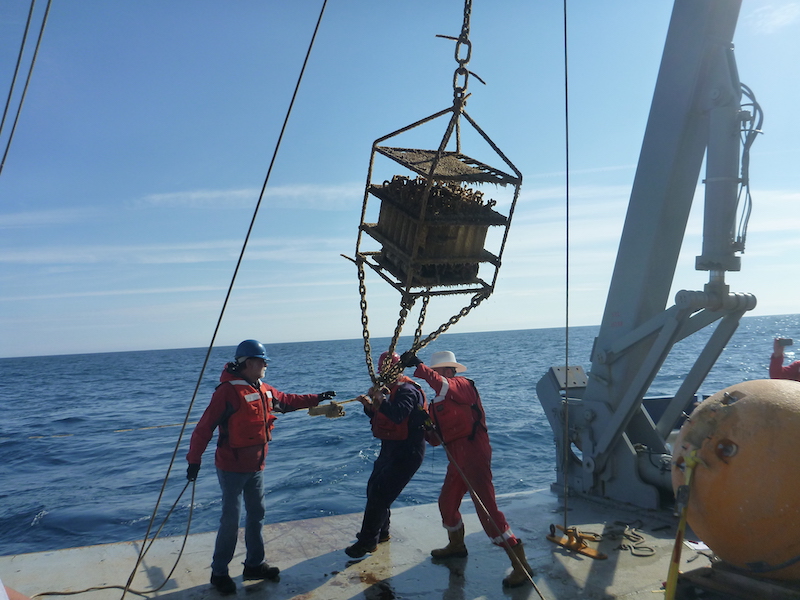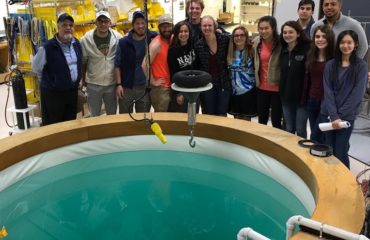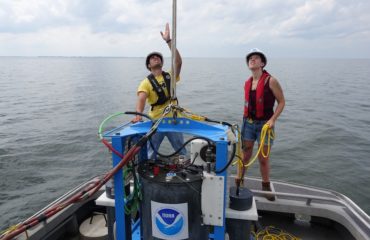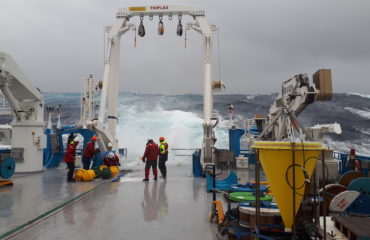A RAS-500 and other in situ instruments in the Overturning in the Subpolar North Atlantic Program (OSNAP) research program are providing long-term measurements including how climate change is affecting important Atlantic Meridional Overturning Circulation (AMOC) processes.
Long-time RAS customer Prof. Stuart Cunningham of the Scottish Association of Marine Science (SAMS), is among the principal investigators conducting Atlantic deployments as part of the OSNAP mooring arrays. Prof. Cunningham’s RAS was obtained through the EU project ATLAS (A Trans-AtLantic Assessment and deep-water ecosystem-based Spatial management plan for Europe).
Prof. Cunningham conducts nutrient and carbon concentration analysis from in-situ samples. Combining these measurements with measurements of the North Atlantic circulation indicates how the North Atlantic biogeochemistry works and helps researchers understand the role of the Atlantic in absorbing anthropogenic carbon.
Studies such as these provide essential data for AMOC model estimates that measure climate change. OSNAP has developed a multi-decadal observing system where a few critical in situ observations from instruments such as the RAS-500, coupled with satellite observations and an Argo float array, will provide a reliable and sustainable measure of the AMOC for decades to come.
In a recent deployment, a RAS-500 was deployed at 50m deep in the Rockall Trough and collected samples every 10 days for one year. Prof. Cunningham’s next OSNAP cruise, scheduled for mid October, will turn around CLASS and OSNAP moorings in the Rockall Trough and Iceland Basin.
See report showing RAS-500 deployment data (publication pending)
Read full article Climate Change, Ocean Currents, and Weather
Read more about OSNAP cruises and instrument arrays.
The Remote Access Sampler (RAS) is a deep water or coastal time series water sampler that collects samples for biological, dissolved major and minor nutrient, dissolved trace metal, or dissolved organic carbon analyses. The RAS sampler collects ambient water and suspended material in Tedlar® bags, isolating the samples for subsequent laboratory analysis. The RAS-500 collects 48 samples of 500ml each and the RAS-100 collects 48 samples of 100ml each, following a user defined sampling schedule




